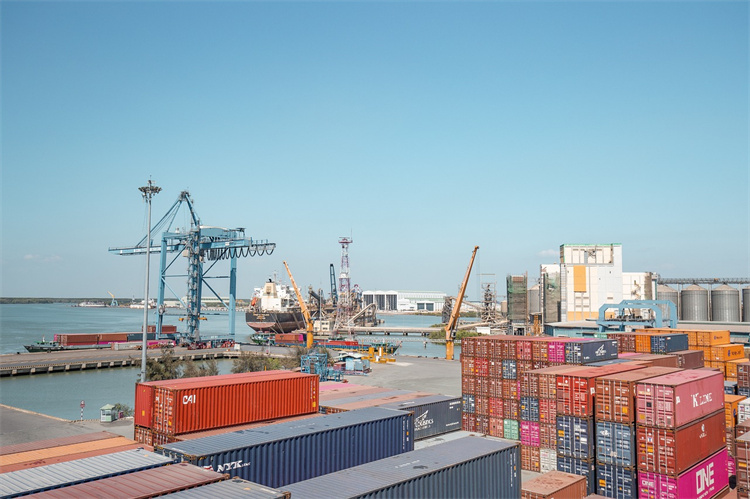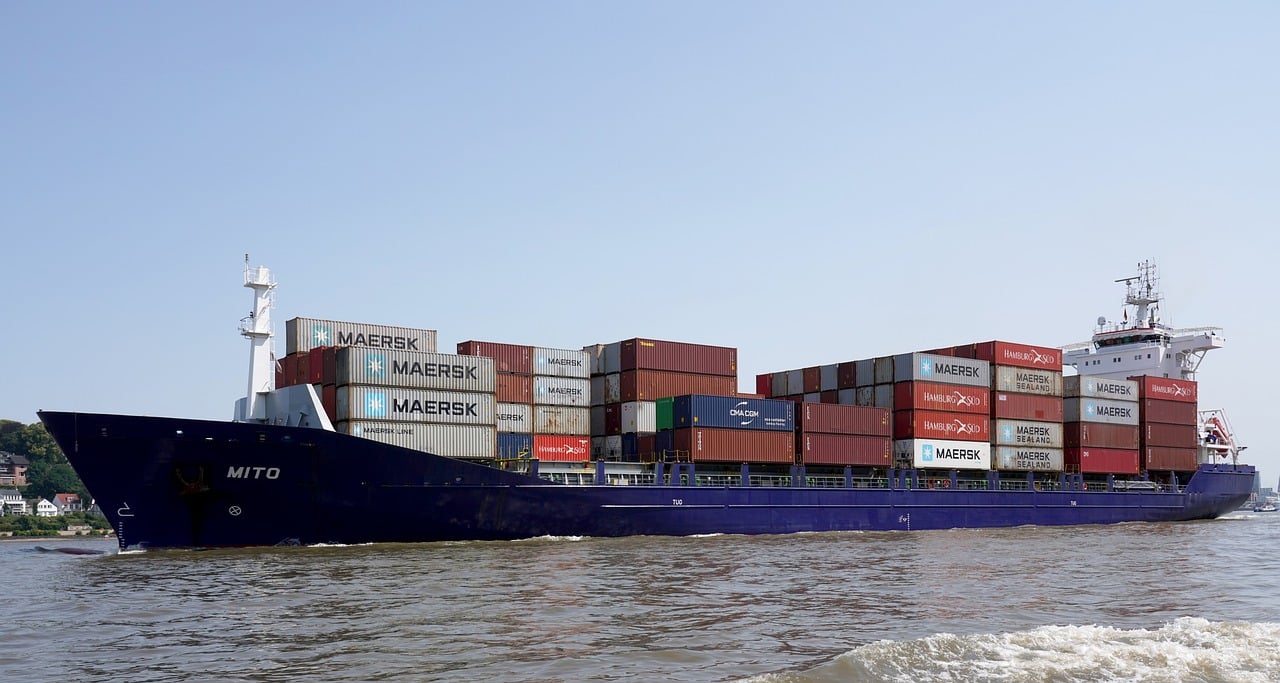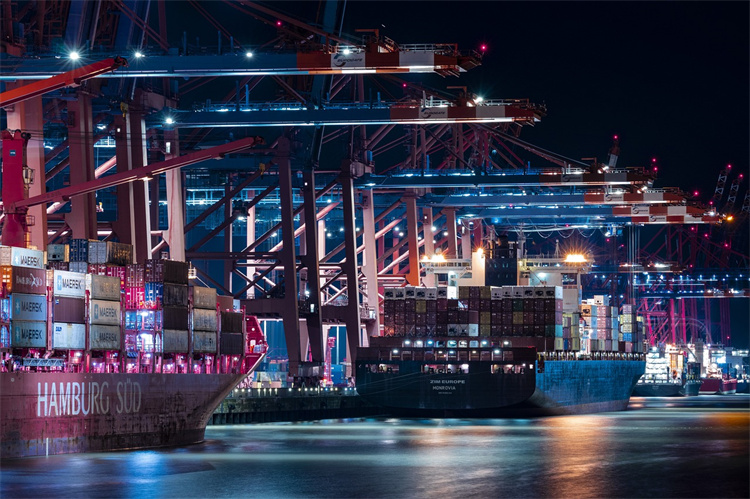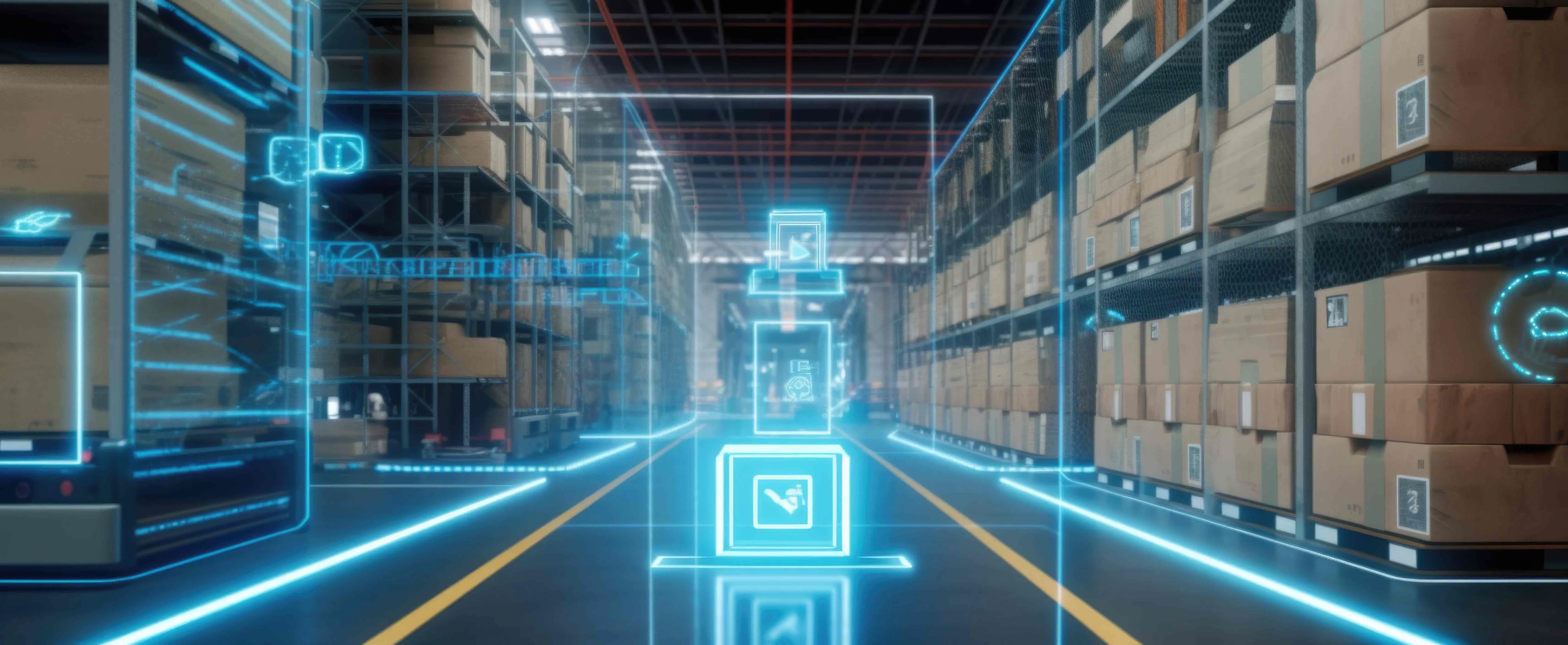Analyzing Port Freeport's Role in Economic Growth

The port of Freeport stands as a pivotal force in driving economic growth along the Gulf Coast. Its strategic location and robust infrastructure make it a cornerstone of trade and commerce. As one of the fastest-growing U.S. seaports for exports, the port of Freeport handles a diverse range of goods, including chemicals, crude oil, and machinery. The port's operations support over 279,000 jobs nationwide, contributing significantly to the local and regional economy. With a total economic impact of $149 billion, the port of Freeport exemplifies its role as a catalyst for economic prosperity.
Key Takeaways
Port Freeport supports over 279,000 jobs nationwide, making it a vital employment hub that enhances local quality of life.
The port generates a staggering $149 billion in economic impact, underscoring its role as a key driver of regional prosperity.
Strategic investments in infrastructure, valued at over $325 million, ensure Port Freeport remains competitive and capable of accommodating larger vessels.
Port Freeport's commitment to training and skill development fosters a competent workforce, enhancing employability in the maritime and logistics sectors.
The port's efficient trade routes and free port policies attract foreign direct investment, boosting economic growth and trade accessibility.
Continuous innovation and sustainability efforts position Port Freeport for future growth, enabling it to adapt to evolving global trade demands.
Collaboration with partners like JUSDA enhances Port Freeport's logistics capabilities, further solidifying its role as a major economic catalyst.
Overview of Port Freeport
Historical Background
Port Freeport, established in 1925, has played a crucial role in the economic development of the Texas Gulf Coast. The creation of the Brazos River Harbor Navigation District marked the beginning of this journey. Voters in Brazoria County approved the district and authorized $1 million in bonds, laying the foundation for what would become a significant economic engine. Over the decades, Port Freeport has evolved to meet the changing demands of global trade. It has consistently invested in its infrastructure, ensuring it remains a leading port in the export of crude oil and natural gas liquids. This strategic focus has positioned Port Freeport as a major player in the shipping industry, generating 266,300 jobs and contributing a total economic output of $157.3 billion.
Current Operations
Today, Port Freeport stands as a beacon of efficiency and innovation. It serves its customers by developing navigational capabilities that enhance trade routes and facilitate the movement of goods. The port ranks sixth nationally in chemical exports, underscoring its importance in the national economy. Port Freeport's operations are not just about moving cargo; they are about driving economic growth. The port's commitment to continuous improvement ensures it remains well-positioned for future growth. Strategic investments have attracted substantial economic activity, making Port Freeport a leading economic catalyst for the Texas Gulf Coast. Its robust infrastructure supports a diverse range of industries, creating thousands of jobs and fostering overall economic prosperity in the region.
Economic Contributions of Port Freeport
Revenue Generation
Port Freeport stands as a significant contributor to the economic landscape, generating substantial revenue through its diverse operations. As a major energy and chemical tanker port, it ranks tenth in the nation for tanker freight. This ranking highlights its pivotal role in the export of crude oil and natural gas liquids. The port's strategic location and state-of-the-art facilities attract a wide range of industries, enhancing its revenue streams. The Freeport Harbor Channel alone supports over 266,000 jobs, underscoring its importance as an economic powerhouse. By facilitating trade and commerce, Port Freeport contributes significantly to the national economy, reinforcing its status as a leading economic catalyst for the Texas Gulf Coast.
Investment in Infrastructure
Port Freeport's commitment to infrastructure investment plays a crucial role in its economic contributions. The port engages in billions of dollars of infrastructure projects, ensuring it remains competitive in global trade. These investments enhance navigational capabilities, marine services, and industrial facilities, creating jobs and fostering economic growth. The port's infrastructure projects, valued at over $325 million, are designed to accommodate larger vessels and boost commerce. Such strategic investments not only support the port's operations but also attract foreign direct investment, further fueling economic expansion. By continuously improving its infrastructure, Port Freeport positions itself as a self-sustaining entity, driving economic benefits for the region and beyond.
Impact on Local and Regional Economies
Local Economic Benefits
Port Freeport significantly boosts the local economy. It creates numerous job opportunities for residents, enhancing their quality of life. The port's operations stimulate local businesses by increasing demand for goods and services. Many small and medium-sized enterprises thrive due to the port's presence. They supply essential services and products to support port activities. This symbiotic relationship fosters a vibrant local economy.
The port of Freeport also contributes to local tax revenues. These funds support public services such as education, healthcare, and infrastructure development. The community benefits from improved facilities and services. The port's economic benefits extend beyond direct employment. It indirectly supports various sectors, including transportation, logistics, and hospitality. This multifaceted impact underscores the port's vital role in local economic growth.
Regional Economic Influence
Port Freeport exerts a substantial influence on the regional economy. Its strategic location on the Gulf Coast makes it a key player in regional trade. The port facilitates the movement of goods across the region, enhancing trade efficiency. It serves as a critical hub for regional supply chains, connecting businesses to global markets.
The port attracts foreign direct investment, boosting regional economic development. Investors recognize the port's potential for growth and profitability. This influx of capital supports infrastructure projects and business expansions. The port's robust infrastructure accommodates larger vessels, increasing trade volume. This capability strengthens the region's position in international commerce.
Free port's operations generate significant economic activity across the region. It supports thousands of jobs in various industries, from manufacturing to retail. The port's influence extends to neighboring communities, fostering regional prosperity. Its economic benefits ripple through the region, driving growth and development.
Job Creation and Workforce Development

Employment Opportunities
Port Freeport plays a pivotal role in creating employment opportunities, significantly impacting the local and regional job market. The port's operations support over 266,000 jobs nationwide, highlighting its importance as a major employment hub. By facilitating the movement of more than 30 million tons of cargo annually, Port Freeport ensures a steady demand for a diverse workforce. This demand spans various sectors, including logistics, transportation, and warehousing. The port's strategic location and robust infrastructure attract numerous businesses, further boosting job creation. As a result, communities surrounding the port experience enhanced economic benefits, with increased job availability and improved quality of life for residents.
Training and Skill Development
Port Freeport not only generates employment but also invests in training and skill development to ensure a competent workforce. The port collaborates with educational institutions and industry partners to offer specialized training programs. These programs equip workers with the necessary skills to excel in the maritime and logistics sectors. By focusing on skill development, Port Freeport enhances the employability of its workforce, ensuring they meet the evolving demands of global trade. The port's commitment to workforce development fosters a culture of continuous learning and innovation. This approach not only benefits individual workers but also strengthens the port's position as a leader in the industry.
Survey Results:
Economic Impact and Job Creation: Port Freeport supports over 279,000 jobs nationwide, contributing significantly to the national economy.
Training and Skill Development: Communities benefit from job creation and skills development, enhancing the overall workforce quality.
Port Freeport's dedication to job creation and workforce development underscores its role as a catalyst for economic growth. By providing employment opportunities and investing in skill development, the port ensures sustained economic benefits for the region. This commitment positions Port Freeport as a vital player in the global trade landscape, driving prosperity and development.
Trade Facilitation and Infrastructure at Port Freeport

Enhancing Trade Efficiency
Port Freeport plays a crucial role in enhancing trade efficiency along the Gulf Coast. As a deep-water seaport, it provides essential services that streamline the movement of goods. The port's strategic location allows it to serve as a vital hub for international trade, connecting businesses to global markets. By facilitating efficient trade routes, Port Freeport reduces transit times and costs for shippers. This efficiency attracts a diverse range of industries, boosting the port's economic impact.
The OECD Study highlights the benefits of free port policies, which Port Freeport exemplifies. These policies attract foreign direct investment by offering no export-import duties and tax exemptions. Such incentives lower the cost of goods and services, making trade more accessible and profitable. Port Freeport's commitment to these principles enhances its role as a catalyst for economic growth.
Infrastructure Development
Port Freeport's infrastructure development is pivotal to its success. The port invests heavily in state-of-the-art facilities to accommodate larger vessels and increase cargo capacity. These investments ensure that the port remains competitive in the global market. By expanding its infrastructure, Port Freeport supports a wide range of industries, from energy to manufacturing.
The port's infrastructure projects, valued at over $325 million, demonstrate its dedication to growth. These projects enhance navigational capabilities and marine services, creating jobs and fostering economic prosperity. The port's robust infrastructure attracts foreign direct investment, further fueling regional development. By continuously improving its facilities, Port Freeport positions itself as a leader in trade facilitation.
Port Freeport's strategic investments and free port policies underscore its importance in the global trade landscape. By enhancing trade efficiency and developing its infrastructure, the port drives economic growth and prosperity. Its role as a deep-water seaport ensures that it remains a vital player in international commerce.
Challenges and Future Prospects
Current Challenges
Port Freeport faces several challenges that could impact its growth and operations. One significant issue is the increasing complexity of global trade regulations. These regulations require constant adaptation to ensure compliance and efficiency. The port must navigate these changes to maintain its competitive edge. Additionally, environmental concerns pose a challenge. The port must balance economic growth with sustainable practices to minimize its ecological footprint.
Another challenge is the need for continuous infrastructure upgrades. As global trade evolves, the port must invest in modern facilities to accommodate larger vessels and increased cargo volumes. This requires substantial financial resources and strategic planning. The port also faces competition from other major ports, both domestically and internationally. To remain a leader in the industry, Port Freeport must differentiate itself through superior services and innovative solutions.
Future Opportunities
Despite these challenges, Port Freeport has numerous opportunities for growth and development. The port's strategic location on the Gulf Coast positions it as a vital hub for international trade. By leveraging this advantage, the port can attract more businesses and increase its cargo throughput. The ongoing expansion of the Panama Canal presents an opportunity for Port Freeport to capture additional shipping traffic, further boosting its economic impact.
Investment in technology offers another avenue for growth. By adopting advanced technologies, such as automation and data analytics, the port can enhance its operational efficiency and service delivery. These innovations can streamline processes, reduce costs, and improve customer satisfaction. The port's commitment to sustainability also presents opportunities for attracting environmentally conscious businesses and investors.
Port Freeport can capitalize on these opportunities by fostering partnerships with industry leaders and stakeholders. Collaboration with educational institutions and research organizations can drive innovation and workforce development. By addressing current challenges and seizing future opportunities, Port Freeport can continue to play a pivotal role in economic growth and prosperity.
JUSDA's Role in Port Freeport's Economic Impact
Integration of China-Europe Express Rail
JUSDA plays a pivotal role in enhancing Port Freeport's economic impact through the integration of the China-Europe Express Rail. This innovative logistics solution connects China and Europe, offering a faster alternative to sea freight and a more cost-effective option compared to air freight. By providing a reliable and efficient railway network, JUSDA facilitates the seamless movement of goods, including electronic products, clothing, and medical supplies, between these two major economic regions.
The integration of the China-Europe Express Rail into Port Freeport's operations enhances the port's capacity to handle increased trade volumes. This rail service reduces transit times and logistics costs, making it an attractive option for businesses seeking to optimize their supply chain logistics. As a result, Port Freeport can attract more international trade, boosting its economic output and reinforcing its position as a leading economic catalyst for the Texas Gulf Coast.
Supply Chain Solutions
JUSDA's comprehensive supply chain solutions further amplify Port Freeport's economic contributions. By leveraging advanced technologies such as IoT, cloud computing, and big data, JUSDA offers tailored logistics and supply chain management services that enhance efficiency and effectiveness. These solutions enable Port Freeport to streamline its operations, reduce costs, and improve service delivery.
JUSDA's Supply Chain Management Collaboration Platform provides real-time transparency and intelligence, allowing Port Freeport to optimize its supply chain processes. This platform supports demand forecasting, delivery schedule coordination, and transport management, ensuring smooth operations and timely delivery of goods. By integrating these solutions, Port Freeport can better serve its diverse range of industries, from energy to manufacturing, creating jobs and fostering economic growth.
Through its strategic partnership with Port Freeport, JUSDA contributes significantly to the port's role as a major economic driver. By integrating the China-Europe Express Rail and offering cutting-edge supply chain solutions, JUSDA enhances Port Freeport's capacity to facilitate trade and commerce, driving prosperity and development in the region.

JUSDA Solutions
To provide you with professional solutions and quotations.
Port Freeport stands as a cornerstone of economic growth, with its operations supporting over 279,000 jobs nationwide and contributing $149 billion to the economy. The port's strategic investments in infrastructure have attracted substantial economic activity, fostering prosperity in the region. As a leader in chemical exports and crude oil shipments, Port Freeport plays a pivotal role in shaping economic landscapes. Looking ahead, the port's commitment to innovation and sustainability promises continued growth and development. By leveraging its strategic location and robust infrastructure, Port Freeport remains poised to drive economic success and enhance global trade connections.
See Also
Exploring How Global Trade Policies Shape Economies
Analyzing the Future Trends in LTL Freight Services
Discovering Innovations in Sea Freight Logistics for 2024
Understanding Current Trends in Logistics Risk Management
Enhancing Efficiency with JUSDA's Latest Warehousing Solutions
